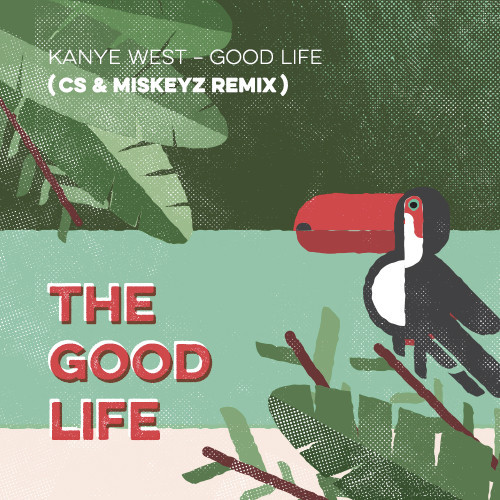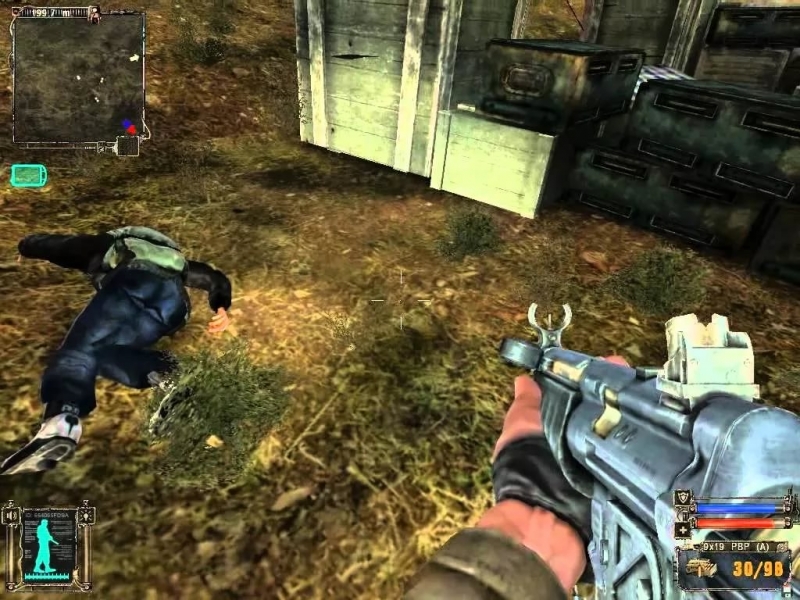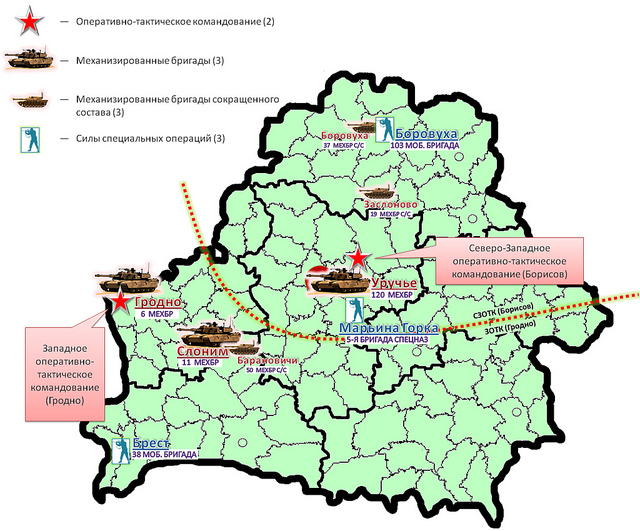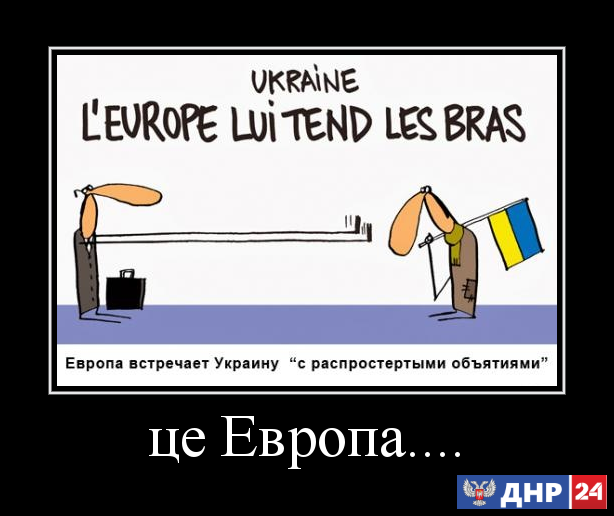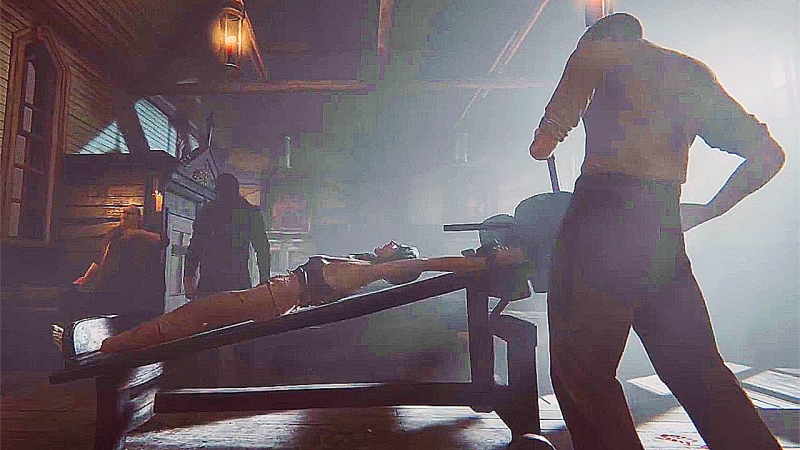Blood And Thunder [OST "Need for Speed Most Wanted" 2005]
Daniel Barenboim gets Wolf-Prize - Uproar at his acceptance speech at Knesset In his acceptance speech Daniel Barenboim cited parts of the THE DECLARATION OF THE ESTABLISHMENT OF THE STATE OF ISRAEL from the 14th of May 1948 to remember the spirit and the fundament for establishing the state of israel. The reactions in the Knesset and after that speech in press and media shows that there are a lot of people in society, in politics, culture and economy who forgot the beginning and the idea for the state of Israel.
DANIEL BARENBOIM
Daniel Barenboim KBE born 15 November 1942 is an Argentinian-Israeli pianist and conductor. He has conducted several important European and American symphony orchestras. Currently he is general music director of the Berlin State Opera and the Staatskapelle Berlin, and principal guest conductor of La Scala in Milan. He is also known for his work with the West-Eastern Divan Orchestra, a Sevilla-based orchestra of young Arab and Israeli musicians, and as an outspoken critic of the Israeli occupation of Palestinian territories.
Barenboim has received numerous awards and prizes, including Britain's Knight Commander of the Order of the British Empire, France's L?gion d'honneur both as a Commander and Grand Officier, the German Grosses Bundesverdienstkreuz and, together with the Palestinian-American scholar Edward Said, Spain's Prince of Asturias Concord Award. He has won seven Grammy awards for his work and discography and is regarded as one of the greatest musicians of the 20th and 21st centuries.
Daniel Barenboim was born in Buenos Aires, Argentina to parents of a Russian Jewish descent. He started piano lessons at the age of five with his mother, continuing to study with his father, who remained his only teacher. On August 19, 1950, at the age of seven, he gave his first formal concert in his hometown, Buenos Aires.
In 1952, Barenboim moved to Israel with his family. Two years later, in the summer of 1954, his parents took him to Salzburg to take part in Igor Markevitch's conducting classes. During that summer he also met and played for Wilhelm Furtwaengler, who has remained a central musical influence and ideal for Barenboim.[2] Furtwaengler called the young Barenboim a "phenomenon" and invited him to perform the Beethoven First Piano Concerto with the Berlin Philharmonic, but Barenboim's father considered it too soon after the second world war for a child of Jewish parents to be performing in Berlin.[3] In 1955 Barenboim studied harmony and composition with Nadia Boulanger in Paris.[1]
In June 1967 Barenboim married British cellist Jacqueline du Pr?, who had converted to Judaism. The ceremony took place at the Western Wall in Jerusalem, a few days after it was captured by the Israeli troups during the Six Day War. The marriage lasted until du Pr?'s death from multiple sclerosis MS in 1987. Du Pr? retired from music in 1973, after being diagnosed with multiple sclerosis. In the early 1980s, Barenboim began a relationship with the Russian pianist Elena Bashkirova, with whom he has two sons born in Paris prior to du Pr?'s death: David Arthur, born 1983, and Michael, born 1985. Barenboim tried to keep his relationship with Bashkirova hidden from du Pr? and believes he succeeded. He and Bashkirova married in 1988. Their son David is a manager-writer for the German hip-hop band Level 8, and Michael is a classical violinist.
Barenboim holds citizenship of Argentina and Israel, as well as honorary citizenship of Spain and Palestine, and lives in Berlin.
Political views
Daniel Barenboim leads a rehearsal of the West-East Divan in Sevilla, Spain, 2005.
Rehearsal of the West-East Divan under the lead of Daniel Barenboim, 2005.
Barenboim, a supporter of Palestinian rights, is an outspoken critic of Israel's right wing governments and the Israeli occupation of the Palestinian territories. In an interview with British music critic Norman Lebrecht in 2003, Barenboim accused Israel of behaving in a manner which was, "morally abhorrent and strategically wrong", and, "putting in danger the very existence of the state of Israel." However, in 1967 at the start of the Six Day War, Barenboim and du Pr? performed for the Israeli troops on the front lines, as well as during the Yom Kippur war in 1973. During the Gulf War, he and an orchestra performed in Israel in gas masks.
West-Eastern Divan
In 1999, Barenboim and Palestinian-American intellectual Edward Said jointly founded the West-Eastern Divan orchestra. It is an initiative to bring together, every summer, a group of young classical musicians from Israel, the Palestinian territories and Arab countries to promote mutual reflection and understanding. Barenboim and Said were recipients of the 2002 Prince of Asturias Awards for their work in "improving understanding between nations." Together they wrote the book Parallels and Paradoxes, based on a series of public discussions held at New York's Carnegie Hall.
In September 2005, presenting the book written with Said, Barenboim refused to be interviewed by uniformed Israel Defense Forces Radio reporter Dafna Arad, considering the wearing of the uniform insensitive for the occasion. In response, Israeli Education Minister Limor Livnat of the Likud party called him "a real Jew hater" and "a real anti-Semite."
Wolf Prize
In May 2004, Barenboim was awarded the Wolf Prize at a ceremony at the Israeli Knesset. Education Minister Livnat held up the nomination until Barenboim apologized for his performance of Wagner in Israel. Barenboim called Livnat's demand "politically motivated", adding "I don't see what I need to apologize about. If I ever hurt a person privately or in public, I am sorry, because I have no intention of hurting people...", which was good enough for Livnat, but the ceremony was boycotted by Knesset Speaker Reuven Rivlin, also a member of the Likud party. In his acceptance speech, Barenboim took the opportunity to express his opinions on the political situation, referring to the Israeli Declaration of Independence in 1948:
"I am asking today with deep sorrow: Can we, despite all our achievements, ignore the intolerable gap between what the Declaration of Independence promised and what was fulfilled, the gap between the idea and the realities of Israel? Does the condition of occupation and domination over another people fit the Declaration of Independence? Is there any sense in the independence of one at the *** of the fundamental rights of the other? Can the Jewish people whose history is a record of continued suffering and relentless persecution, allow themselves to be indifferent to the rights and suffering of a neighboring people? Can the State of Israel allow itself an unrealistic dream of an ideological end to the conflict instead of pursuing a pragmatic, humanitarian one based on social justice?"
Israel's President Moshe Katsav and Education Minister Livnat criticized Barenboim for his speech. Livnat accused him of attacking the state of Israel, to which Barenboim replied that he had not done so, but that he instead had merely cited the text of the Israeli Declaration of Independence. In March 2007, Barenboim said: "The whole subject of Wagner in Israel has been politicized and is a symptom of a malaise that goes very deep in Israeli society...".
Performing in the West Bank and Gaza Strip
Barenboim has performed several times in the West Bank, in 1999 at Bir Zeit University and several times in Ramallah.
In December 2007, Barenboim and 20 musicians from England, the United States, France and Germany, and one Palestinian were scheduled to play a baroque music concert in Gaza. Although they had received authorization from Israeli authorities, the Palestinian was stopped at the Israel-Gaza border and told that he needed individual permission to enter. The group waited seven hours at the border, and then canceled the concert in solidarity. Barenboim commented: "A baroque music concert in a Roman Catholic church in Gaza - as we all know - has nothing to do with security and would bring so much joy to people who live there in great difficulty."
In January 2008, after performing in Ramallah, Barenboim accepted honorary Palestinian citizenship, becoming the first Jewish Israeli citizen to be offered the status. Barenboim said he hoped it would serve as a public gesture of peace.[49] Some Israelis criticized Barenboim's decision to accept Palestinian citizenship. The parliamentary faction chairman of the Shas party demanded that Barenboim be stripped of his Israeli citizenship, but the Interior Minister told the media that "the matter is not even up for discussion."
In January 2009, Barenboim cancelled two concerts of the West-Eastern Divan Orchestra in Qatar and Cairo "due to the escalating violence in Gaza and the resulting concerns for the musicians? safety."
In May 2011, Barenboim conducted the "Orchestra for Gaza" composed of volunteers from the Berlin Philharmonic, the Berlin Staatskapelle, the Orchestra of La Scala in Milan, the Vienna Philharmonic and the Orchestre de Paris ? at al-Mathaf Cultural House. The concert, held in Gaza City was co-ordinated in secret with the United Nations. The orchestra flew from Berlin to Vienna and from there to El Arish on a plane chartered by Barenboim, entering the Gaza Strip at the Egyptian Rafah Border Crossing. The musicians were escorted by a convoy of United Nations vehicles.[52] The concert, the first performance by an international classical ensemble in the strip, was attended by an invited audience of several hundred schoolchildren and NGO workers, who greeted Barenboim with applause.[53] The orchestra played Mozart's Eine kleine Nachtmusik and Symphony No. 40, also familiar to an Arab audience as basis of one of the songs of the famous Arab singer Fairuz. In his speech Barenboim said: "Everyone has to understand that the Palestinian cause is a just cause therefore it can be only given justice if it is achieved without violence. Violence can only weaken the righteousness of the Palestinian cause".
Source:
THE WOLF PRIZE
The Wolf Prize is an international award, that has been presented most years since 1978 to living scientists and artists for "achievements in the interest of mankind and friendly relations among peoples ... irrespective of nationality, race, colour, religion, *** or political views."
The prize is awarded in Israel by the Wolf Foundation, founded by Dr. Ricardo Wolf, a German-born inventor and former Cuban ambassador to Israel. It is awarded in six fields: Agriculture, Chemistry, Mathematics, Medicine, Physics, and an Arts prize that rotates between architecture, music, painting and sculpture. Each prize consists of a diploma and US$100,000. The prize is described by the Foundation as being "awarded annually", but is not in fact awarded every year: only six prizes were awarded between 2000 and 2009 in most fields, and only four in Physics.
The Wolf Prizes in physics and chemistry are often considered the most prestigious awards in those fields after the Nobel Prize[1][2][3]. The prize in physics has gained a reputation for identifying future winners of the Nobel Prize ? from the 26 prizes awarded between 1978 and 2010, fourteen winners have gone on to win the Nobel Prize, five of those in the following year.
In medicine, the prize is probably the third most prestigious, after the Nobel Prize and the Lasker Award. Until the establishment of the Abel Prize, the Wolf Prize was probably the closest equivalent of a "Nobel Prize in Mathematics", since the more prestigious Fields Medal was only awarded every four years to mathematicians under forty years old. The Prize in Agriculture has likewise been equated to a "Nobel Prize in Agriculture".[4]
For past Wolf Prize laureates, see the separate lists for Agriculture, Chemistry, Mathematics, Medicine, Physics and Arts.
Source:
THE DECLARATION OF THE ESTABLISHMENT OF THE STATE OF ISRAEL
ERETZ-ISRAEL [Hebrew - the Land of Israel, Palestine] was the birthplace of the Jewish people. Here their spiritual, religious and political identity was shaped. Here they first attained to statehood, created cultural values of national and universal significance and gave to the world the eternal Book of Books.
After being forcibly exiled from their land, the people kept faith with it throughout their Dispersion and never ceased to pray and hope for their return to it and for the restoration in it of their political freedom.
Impelled by this historic and traditional attachment, Jews strove in every successive generation to re-establish themselves in their ancient homeland. In recent decades they returned in their masses. Pioneers, ma'pilim [Hebrew - immigrants coming to Eretz-Israel in defiance of restrictive legislation] and defenders, they made deserts bloom, revived the Hebrew language, built villages and towns, and created a thriving community controlling its own economy and culture, loving peace but knowing how to defend itself, bringing the blessings of progress to all the country's inhabitants, and aspiring towards independent nationhood.
In the year 5657 1897, at the summons of the spiritual father of the Jewish State, Theodore Herzl, the First Zionist Congress convened and proclaimed the right of the Jewish people to national rebirth in its own country.
This right was recognized in the Balfour Declaration of the 2nd November, 1917, and re-affirmed in the Mandate of the League of Nations which, in particular, gave international sanction to the historic connection between the Jewish people and Eretz-Israel and to the right of the Jewish people to rebuild its National Home.
The catastrophe which recently befell the Jewish people - the massacre of millions of Jews in Europe - was another clear demonstration of the urgency of solving the problem of its homelessness by re-establishing in Eretz-Israel the Jewish State, which would open the gates of the homeland wide to every Jew and confer upon the Jewish people the status of a fully privileged member of the comity of nations.
Survivors of the Nazi holocaust in Europe, as well as Jews from other parts of the world, continued to migrate to Eretz-Israel, undaunted by difficulties, restrictions and dangers, and never ceased to assert their right to a life of dignity, freedom and honest toil in their national homeland.
In the Second World War, the Jewish community of this country contributed its full share to the struggle of the freedom- and peace-loving nations against the forces of Nazi wickedness and, by the blood of its soldiers and its war effort, gained the right to be reckoned among the peoples who founded the United Nations.
On the 29th November, 1947, the United Nations General Assembly passed a resolution calling for the establishment of a Jewish State in Eretz-Israel; the General Assembly required the inhabitants of Eretz-Israel to take such steps as were necessary on their part for the implementation of that resolution. This recognition by the United Nations of the right of the Jewish people to establish their State is irrevocable.
This right is the natural right of the Jewish people to be masters of their own fate, like all other nations, in their own sovereign State.
ACCORDINGLY WE, MEMBERS OF THE PEOPLE'S COUNCIL, REPRESENTATIVES OF THE JEWISH COMMUNITY OF ERETZ-ISRAEL AND OF THE ZIONIST MOVEMENT, ARE HERE ASSEMBLED ON THE DAY OF THE TERMINATION OF THE BRITISH MANDATE OVER ERETZ-ISRAEL AND, BY VIRTUE OF OUR NATURAL AND HISTORIC RIGHT AND ON THE STRENGTH OF THE RESOLUTION OF THE UNITED NATIONS GENERAL ASSEMBLY, *** DECLARE THE ESTABLISHMENT OF A JEWISH STATE IN ERETZ-ISRAEL, TO BE KNOWN AS THE STATE OF ISRAEL.
WE DECLARE that, with effect from the moment of the termination of the Mandate being tonight, the eve of Sabbath, the 6th Iyar, 5708 15th May, 1948, until the establishment of the elected, regular authorities of the State in accordance with the Constitution which shall be adopted by the Elected Constituent Assembly not later than the 1st October 1948, the People's Council shall act as a Provisional Council of State, and its executive organ, the People's Administration, shall be the Provisional Government of the Jewish State, to be called "Israel".
THE STATE OF ISRAEL will be open for Jewish immigration and for the Ingathering of the Exiles; it will foster the development of the country for the benefit of all its inhabitants; it will be based on freedom, justice and peace as envisaged by the prophets of Israel; it will ensure complete equality of social and political rights to all its inhabitants irrespective of religion, race or ***; it will guarantee freedom of religion, conscience, language, education and culture; it will safeguard the Holy Places of all religions; and it will be faithful to the principles of the Charter of the United Nations.
THE STATE OF ISRAEL is prepared to cooperate with the agencies and representatives of the United Nations in implementing the resolution of the General Assembly of the 29th November, 1947, and will take steps to bring about the economic union of the whole of Eretz-Israel.
WE APPEAL to the United Nations to assist the Jewish people in the building-up of its State and to receive the State of Israel into the comity of nations.
WE APPEAL - in the very midst of the onslaught launched against us now for months - to the Arab inhabitants of the State of Israel to preserve peace and participate in the upbuilding of the State on the basis of full and equal citizenship and due representation in all its provisional and permanent institutions.
WE EXTEND our hand to all neighbouring states and their peoples in an offer of peace and good neighbourliness, and appeal to them to establish bonds of cooperation and mutual help with the sovereign Jewish people settled in its own land. The State of Israel is prepared to do its share in a common effort for the advancement of the entire Middle East.
WE APPEAL to the Jewish people throughout the Diaspora to rally round the Jews of Eretz-Israel in the tasks of immigration and upbuilding and to stand by them in the great struggle for the realization of the age-old dream - the redemption of Israel.
PLACING OUR TRUST IN THE "ROCK OF ISRAEL", WE AFFIX OUR SIGNATURES TO THIS PROCLAMATION AT THIS SESSION OF THE PROVISIONAL COUNCIL OF STATE, ON THE SOIL OF THE HOMELAND, IN THE CITY OF TEL-AVIV, ON THIS SABBATH EVE, THE 5TH DAY OF IYAR, 5708 14TH MAY,1948.
David Ben-Gurion
The Declaration signed by
David Ben-Gurion *1886 in Polen
Jizchak Ben Zwi * 1884 in der Ukraine
Mordechai Bentov *1900 in Polen
Daniel Auster *1893 in Galizien
Rabbi Zeev Gold *1889 in Polen
Peretz Bernstein *1890 in Deutschland
Eliyahu Berligne *1866 in Russland
Abraham Granovski *1890 in Bessarabien
Yitzchak Gr?nbaum *1879 in Polen
Meir Grabovsky *1905 in Russland
Zerah Warhaftig *1906 in Russland
Meir Vilner *1919 in Litauen
Eliyahu Dobkin *1898 in Russland
Rabbi Kalman Kahana *1910 in Russland
Rachel Cohen *1888 in Russland
Meir David L?wenstein *1901 in D?nemark
Herzl Vardi, *1903 in Litauen
Rabbi Yitzchak Meir Levin *1894 in Polen
Saadia Kobashi *1904 im Yemen
Nahum Nir *1884 in Polen
Golda Meir *1898 in der Ukraine
Zvi Luria *1906 in Polen
David Zvi Pinkas *1895 in Ungarn
Rabbi Yehuda Leib Fishmann *1875 in Bessarabien
Zvi Segal *1901 in Polen
Eliezer Kaplan *1891 in Russland
Moshe Kol *1911 in Polen
Aharon Zisling *1901 in Russland
David Remez *1886 in Russland
Pinchas Rosen *1887 in Deutschland
Avraham Katznelson *1888 in Russland
Benzion Sternberg *1895 in der Bukowina
Mordechai Shattner *1904 in Ungarn
Berl Repetur *1902 in der Ukraine
Moshe Shapira *1902 in Polen
Mosche Scharet *1894 in der Ukraine
Bechor Shalom Shitret *1895 in Tiberias/Israel
Source:
Original:
Original sound file of speech: ;LANGUAGE_NAME=En
- Mastodon Blood And Thunder [OST "Need for Speed Most Wanted" 2005]
Скачать быстроРазмер файла - 430.08 KB
Прочая музыка из игры
DANIEL BARENBOIM
Daniel Barenboim KBE born 15 November 1942 is an Argentinian-Israeli pianist and conductor. He has conducted several important European and American symphony orchestras. Currently he is general music director of the Berlin State Opera and the Staatskapelle Berlin, and principal guest conductor of La Scala in Milan. He is also known for his work with the West-Eastern Divan Orchestra, a Sevilla-based orchestra of young Arab and Israeli musicians, and as an outspoken critic of the Israeli occupation of Palestinian territories.
Barenboim has received numerous awards and prizes, including Britain's Knight Commander of the Order of the British Empire, France's L?gion d'honneur both as a Commander and Grand Officier, the German Grosses Bundesverdienstkreuz and, together with the Palestinian-American scholar Edward Said, Spain's Prince of Asturias Concord Award. He has won seven Grammy awards for his work and discography and is regarded as one of the greatest musicians of the 20th and 21st centuries.
Daniel Barenboim was born in Buenos Aires, Argentina to parents of a Russian Jewish descent. He started piano lessons at the age of five with his mother, continuing to study with his father, who remained his only teacher. On August 19, 1950, at the age of seven, he gave his first formal concert in his hometown, Buenos Aires.
In 1952, Barenboim moved to Israel with his family. Two years later, in the summer of 1954, his parents took him to Salzburg to take part in Igor Markevitch's conducting classes. During that summer he also met and played for Wilhelm Furtwaengler, who has remained a central musical influence and ideal for Barenboim.[2] Furtwaengler called the young Barenboim a "phenomenon" and invited him to perform the Beethoven First Piano Concerto with the Berlin Philharmonic, but Barenboim's father considered it too soon after the second world war for a child of Jewish parents to be performing in Berlin.[3] In 1955 Barenboim studied harmony and composition with Nadia Boulanger in Paris.[1]
In June 1967 Barenboim married British cellist Jacqueline du Pr?, who had converted to Judaism. The ceremony took place at the Western Wall in Jerusalem, a few days after it was captured by the Israeli troups during the Six Day War. The marriage lasted until du Pr?'s death from multiple sclerosis MS in 1987. Du Pr? retired from music in 1973, after being diagnosed with multiple sclerosis. In the early 1980s, Barenboim began a relationship with the Russian pianist Elena Bashkirova, with whom he has two sons born in Paris prior to du Pr?'s death: David Arthur, born 1983, and Michael, born 1985. Barenboim tried to keep his relationship with Bashkirova hidden from du Pr? and believes he succeeded. He and Bashkirova married in 1988. Their son David is a manager-writer for the German hip-hop band Level 8, and Michael is a classical violinist.
Barenboim holds citizenship of Argentina and Israel, as well as honorary citizenship of Spain and Palestine, and lives in Berlin.
Political views
Daniel Barenboim leads a rehearsal of the West-East Divan in Sevilla, Spain, 2005.
Rehearsal of the West-East Divan under the lead of Daniel Barenboim, 2005.
Barenboim, a supporter of Palestinian rights, is an outspoken critic of Israel's right wing governments and the Israeli occupation of the Palestinian territories. In an interview with British music critic Norman Lebrecht in 2003, Barenboim accused Israel of behaving in a manner which was, "morally abhorrent and strategically wrong", and, "putting in danger the very existence of the state of Israel." However, in 1967 at the start of the Six Day War, Barenboim and du Pr? performed for the Israeli troops on the front lines, as well as during the Yom Kippur war in 1973. During the Gulf War, he and an orchestra performed in Israel in gas masks.
West-Eastern Divan
In 1999, Barenboim and Palestinian-American intellectual Edward Said jointly founded the West-Eastern Divan orchestra. It is an initiative to bring together, every summer, a group of young classical musicians from Israel, the Palestinian territories and Arab countries to promote mutual reflection and understanding. Barenboim and Said were recipients of the 2002 Prince of Asturias Awards for their work in "improving understanding between nations." Together they wrote the book Parallels and Paradoxes, based on a series of public discussions held at New York's Carnegie Hall.
In September 2005, presenting the book written with Said, Barenboim refused to be interviewed by uniformed Israel Defense Forces Radio reporter Dafna Arad, considering the wearing of the uniform insensitive for the occasion. In response, Israeli Education Minister Limor Livnat of the Likud party called him "a real Jew hater" and "a real anti-Semite."
Wolf Prize
In May 2004, Barenboim was awarded the Wolf Prize at a ceremony at the Israeli Knesset. Education Minister Livnat held up the nomination until Barenboim apologized for his performance of Wagner in Israel. Barenboim called Livnat's demand "politically motivated", adding "I don't see what I need to apologize about. If I ever hurt a person privately or in public, I am sorry, because I have no intention of hurting people...", which was good enough for Livnat, but the ceremony was boycotted by Knesset Speaker Reuven Rivlin, also a member of the Likud party. In his acceptance speech, Barenboim took the opportunity to express his opinions on the political situation, referring to the Israeli Declaration of Independence in 1948:
"I am asking today with deep sorrow: Can we, despite all our achievements, ignore the intolerable gap between what the Declaration of Independence promised and what was fulfilled, the gap between the idea and the realities of Israel? Does the condition of occupation and domination over another people fit the Declaration of Independence? Is there any sense in the independence of one at the *** of the fundamental rights of the other? Can the Jewish people whose history is a record of continued suffering and relentless persecution, allow themselves to be indifferent to the rights and suffering of a neighboring people? Can the State of Israel allow itself an unrealistic dream of an ideological end to the conflict instead of pursuing a pragmatic, humanitarian one based on social justice?"
Israel's President Moshe Katsav and Education Minister Livnat criticized Barenboim for his speech. Livnat accused him of attacking the state of Israel, to which Barenboim replied that he had not done so, but that he instead had merely cited the text of the Israeli Declaration of Independence. In March 2007, Barenboim said: "The whole subject of Wagner in Israel has been politicized and is a symptom of a malaise that goes very deep in Israeli society...".
Performing in the West Bank and Gaza Strip
Barenboim has performed several times in the West Bank, in 1999 at Bir Zeit University and several times in Ramallah.
In December 2007, Barenboim and 20 musicians from England, the United States, France and Germany, and one Palestinian were scheduled to play a baroque music concert in Gaza. Although they had received authorization from Israeli authorities, the Palestinian was stopped at the Israel-Gaza border and told that he needed individual permission to enter. The group waited seven hours at the border, and then canceled the concert in solidarity. Barenboim commented: "A baroque music concert in a Roman Catholic church in Gaza - as we all know - has nothing to do with security and would bring so much joy to people who live there in great difficulty."
In January 2008, after performing in Ramallah, Barenboim accepted honorary Palestinian citizenship, becoming the first Jewish Israeli citizen to be offered the status. Barenboim said he hoped it would serve as a public gesture of peace.[49] Some Israelis criticized Barenboim's decision to accept Palestinian citizenship. The parliamentary faction chairman of the Shas party demanded that Barenboim be stripped of his Israeli citizenship, but the Interior Minister told the media that "the matter is not even up for discussion."
In January 2009, Barenboim cancelled two concerts of the West-Eastern Divan Orchestra in Qatar and Cairo "due to the escalating violence in Gaza and the resulting concerns for the musicians? safety."
In May 2011, Barenboim conducted the "Orchestra for Gaza" composed of volunteers from the Berlin Philharmonic, the Berlin Staatskapelle, the Orchestra of La Scala in Milan, the Vienna Philharmonic and the Orchestre de Paris ? at al-Mathaf Cultural House. The concert, held in Gaza City was co-ordinated in secret with the United Nations. The orchestra flew from Berlin to Vienna and from there to El Arish on a plane chartered by Barenboim, entering the Gaza Strip at the Egyptian Rafah Border Crossing. The musicians were escorted by a convoy of United Nations vehicles.[52] The concert, the first performance by an international classical ensemble in the strip, was attended by an invited audience of several hundred schoolchildren and NGO workers, who greeted Barenboim with applause.[53] The orchestra played Mozart's Eine kleine Nachtmusik and Symphony No. 40, also familiar to an Arab audience as basis of one of the songs of the famous Arab singer Fairuz. In his speech Barenboim said: "Everyone has to understand that the Palestinian cause is a just cause therefore it can be only given justice if it is achieved without violence. Violence can only weaken the righteousness of the Palestinian cause".
Source:
THE WOLF PRIZE
The Wolf Prize is an international award, that has been presented most years since 1978 to living scientists and artists for "achievements in the interest of mankind and friendly relations among peoples ... irrespective of nationality, race, colour, religion, *** or political views."
The prize is awarded in Israel by the Wolf Foundation, founded by Dr. Ricardo Wolf, a German-born inventor and former Cuban ambassador to Israel. It is awarded in six fields: Agriculture, Chemistry, Mathematics, Medicine, Physics, and an Arts prize that rotates between architecture, music, painting and sculpture. Each prize consists of a diploma and US$100,000. The prize is described by the Foundation as being "awarded annually", but is not in fact awarded every year: only six prizes were awarded between 2000 and 2009 in most fields, and only four in Physics.
The Wolf Prizes in physics and chemistry are often considered the most prestigious awards in those fields after the Nobel Prize[1][2][3]. The prize in physics has gained a reputation for identifying future winners of the Nobel Prize ? from the 26 prizes awarded between 1978 and 2010, fourteen winners have gone on to win the Nobel Prize, five of those in the following year.
In medicine, the prize is probably the third most prestigious, after the Nobel Prize and the Lasker Award. Until the establishment of the Abel Prize, the Wolf Prize was probably the closest equivalent of a "Nobel Prize in Mathematics", since the more prestigious Fields Medal was only awarded every four years to mathematicians under forty years old. The Prize in Agriculture has likewise been equated to a "Nobel Prize in Agriculture".[4]
For past Wolf Prize laureates, see the separate lists for Agriculture, Chemistry, Mathematics, Medicine, Physics and Arts.
Source:
THE DECLARATION OF THE ESTABLISHMENT OF THE STATE OF ISRAEL
ERETZ-ISRAEL [Hebrew - the Land of Israel, Palestine] was the birthplace of the Jewish people. Here their spiritual, religious and political identity was shaped. Here they first attained to statehood, created cultural values of national and universal significance and gave to the world the eternal Book of Books.
After being forcibly exiled from their land, the people kept faith with it throughout their Dispersion and never ceased to pray and hope for their return to it and for the restoration in it of their political freedom.
Impelled by this historic and traditional attachment, Jews strove in every successive generation to re-establish themselves in their ancient homeland. In recent decades they returned in their masses. Pioneers, ma'pilim [Hebrew - immigrants coming to Eretz-Israel in defiance of restrictive legislation] and defenders, they made deserts bloom, revived the Hebrew language, built villages and towns, and created a thriving community controlling its own economy and culture, loving peace but knowing how to defend itself, bringing the blessings of progress to all the country's inhabitants, and aspiring towards independent nationhood.
In the year 5657 1897, at the summons of the spiritual father of the Jewish State, Theodore Herzl, the First Zionist Congress convened and proclaimed the right of the Jewish people to national rebirth in its own country.
This right was recognized in the Balfour Declaration of the 2nd November, 1917, and re-affirmed in the Mandate of the League of Nations which, in particular, gave international sanction to the historic connection between the Jewish people and Eretz-Israel and to the right of the Jewish people to rebuild its National Home.
The catastrophe which recently befell the Jewish people - the massacre of millions of Jews in Europe - was another clear demonstration of the urgency of solving the problem of its homelessness by re-establishing in Eretz-Israel the Jewish State, which would open the gates of the homeland wide to every Jew and confer upon the Jewish people the status of a fully privileged member of the comity of nations.
Survivors of the Nazi holocaust in Europe, as well as Jews from other parts of the world, continued to migrate to Eretz-Israel, undaunted by difficulties, restrictions and dangers, and never ceased to assert their right to a life of dignity, freedom and honest toil in their national homeland.
In the Second World War, the Jewish community of this country contributed its full share to the struggle of the freedom- and peace-loving nations against the forces of Nazi wickedness and, by the blood of its soldiers and its war effort, gained the right to be reckoned among the peoples who founded the United Nations.
On the 29th November, 1947, the United Nations General Assembly passed a resolution calling for the establishment of a Jewish State in Eretz-Israel; the General Assembly required the inhabitants of Eretz-Israel to take such steps as were necessary on their part for the implementation of that resolution. This recognition by the United Nations of the right of the Jewish people to establish their State is irrevocable.
This right is the natural right of the Jewish people to be masters of their own fate, like all other nations, in their own sovereign State.
ACCORDINGLY WE, MEMBERS OF THE PEOPLE'S COUNCIL, REPRESENTATIVES OF THE JEWISH COMMUNITY OF ERETZ-ISRAEL AND OF THE ZIONIST MOVEMENT, ARE HERE ASSEMBLED ON THE DAY OF THE TERMINATION OF THE BRITISH MANDATE OVER ERETZ-ISRAEL AND, BY VIRTUE OF OUR NATURAL AND HISTORIC RIGHT AND ON THE STRENGTH OF THE RESOLUTION OF THE UNITED NATIONS GENERAL ASSEMBLY, *** DECLARE THE ESTABLISHMENT OF A JEWISH STATE IN ERETZ-ISRAEL, TO BE KNOWN AS THE STATE OF ISRAEL.
WE DECLARE that, with effect from the moment of the termination of the Mandate being tonight, the eve of Sabbath, the 6th Iyar, 5708 15th May, 1948, until the establishment of the elected, regular authorities of the State in accordance with the Constitution which shall be adopted by the Elected Constituent Assembly not later than the 1st October 1948, the People's Council shall act as a Provisional Council of State, and its executive organ, the People's Administration, shall be the Provisional Government of the Jewish State, to be called "Israel".
THE STATE OF ISRAEL will be open for Jewish immigration and for the Ingathering of the Exiles; it will foster the development of the country for the benefit of all its inhabitants; it will be based on freedom, justice and peace as envisaged by the prophets of Israel; it will ensure complete equality of social and political rights to all its inhabitants irrespective of religion, race or ***; it will guarantee freedom of religion, conscience, language, education and culture; it will safeguard the Holy Places of all religions; and it will be faithful to the principles of the Charter of the United Nations.
THE STATE OF ISRAEL is prepared to cooperate with the agencies and representatives of the United Nations in implementing the resolution of the General Assembly of the 29th November, 1947, and will take steps to bring about the economic union of the whole of Eretz-Israel.
WE APPEAL to the United Nations to assist the Jewish people in the building-up of its State and to receive the State of Israel into the comity of nations.
WE APPEAL - in the very midst of the onslaught launched against us now for months - to the Arab inhabitants of the State of Israel to preserve peace and participate in the upbuilding of the State on the basis of full and equal citizenship and due representation in all its provisional and permanent institutions.
WE EXTEND our hand to all neighbouring states and their peoples in an offer of peace and good neighbourliness, and appeal to them to establish bonds of cooperation and mutual help with the sovereign Jewish people settled in its own land. The State of Israel is prepared to do its share in a common effort for the advancement of the entire Middle East.
WE APPEAL to the Jewish people throughout the Diaspora to rally round the Jews of Eretz-Israel in the tasks of immigration and upbuilding and to stand by them in the great struggle for the realization of the age-old dream - the redemption of Israel.
PLACING OUR TRUST IN THE "ROCK OF ISRAEL", WE AFFIX OUR SIGNATURES TO THIS PROCLAMATION AT THIS SESSION OF THE PROVISIONAL COUNCIL OF STATE, ON THE SOIL OF THE HOMELAND, IN THE CITY OF TEL-AVIV, ON THIS SABBATH EVE, THE 5TH DAY OF IYAR, 5708 14TH MAY,1948.
David Ben-Gurion
The Declaration signed by
David Ben-Gurion *1886 in Polen
Jizchak Ben Zwi * 1884 in der Ukraine
Mordechai Bentov *1900 in Polen
Daniel Auster *1893 in Galizien
Rabbi Zeev Gold *1889 in Polen
Peretz Bernstein *1890 in Deutschland
Eliyahu Berligne *1866 in Russland
Abraham Granovski *1890 in Bessarabien
Yitzchak Gr?nbaum *1879 in Polen
Meir Grabovsky *1905 in Russland
Zerah Warhaftig *1906 in Russland
Meir Vilner *1919 in Litauen
Eliyahu Dobkin *1898 in Russland
Rabbi Kalman Kahana *1910 in Russland
Rachel Cohen *1888 in Russland
Meir David L?wenstein *1901 in D?nemark
Herzl Vardi, *1903 in Litauen
Rabbi Yitzchak Meir Levin *1894 in Polen
Saadia Kobashi *1904 im Yemen
Nahum Nir *1884 in Polen
Golda Meir *1898 in der Ukraine
Zvi Luria *1906 in Polen
David Zvi Pinkas *1895 in Ungarn
Rabbi Yehuda Leib Fishmann *1875 in Bessarabien
Zvi Segal *1901 in Polen
Eliezer Kaplan *1891 in Russland
Moshe Kol *1911 in Polen
Aharon Zisling *1901 in Russland
David Remez *1886 in Russland
Pinchas Rosen *1887 in Deutschland
Avraham Katznelson *1888 in Russland
Benzion Sternberg *1895 in der Bukowina
Mordechai Shattner *1904 in Ungarn
Berl Repetur *1902 in der Ukraine
Moshe Shapira *1902 in Polen
Mosche Scharet *1894 in der Ukraine
Bechor Shalom Shitret *1895 in Tiberias/Israel
Source:
Original:
Original sound file of speech: ;LANGUAGE_NAME=En
- Mastodon Blood And Thunder [OST "Need for Speed Most Wanted" 2005]
Возможно Вам понравиться ещё и:
- Blood & Thunder [NFS Most Wanted 2005]
- Blood And Thunder Need for Speed Most Wanted 2005
- A Commotion Crysis 3 of E3 2012
- Blood And Thunder
- Blood And Thunder OST Игра на понижение
- Blood And Thunder OST NFS Most Wanted 2005
- Blood And Thunder
- Iron Tusk Tony Hawk\'s American Wasteland
- Blood And ThunderOST NFS MostWanted
Daniel Barenboim gets Wolf-Prize - Uproar at his acceptance speech at Knesset
Обратите внимание на эти материалы
Все комментарии на сайте (0)
Поделиться мнением
Случайная музыка из игр
Рекомендуемые ролики
Новые ролики
Популярная музыка из игр
Сейчас слушают
Самые популярные игры
![Blood And Thunder [OST "Need for Speed Most Wanted" 2005] - Mastodon Mastodon - Blood And Thunder [OST "Need for Speed Most Wanted" 2005]](/uploads/images/2/0/_/20_mastodon_blood_and_thunder_ost_need_for_speed_most_wanted_2005.jpg)
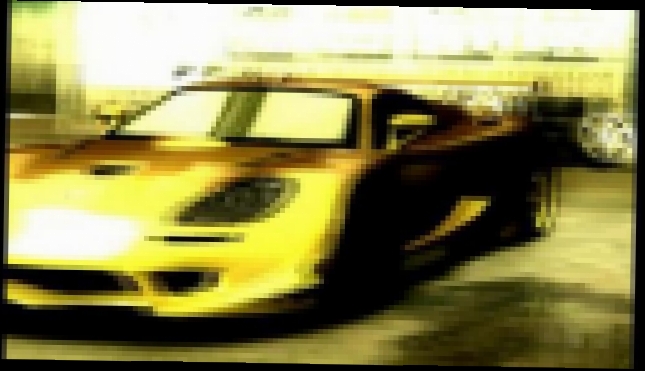
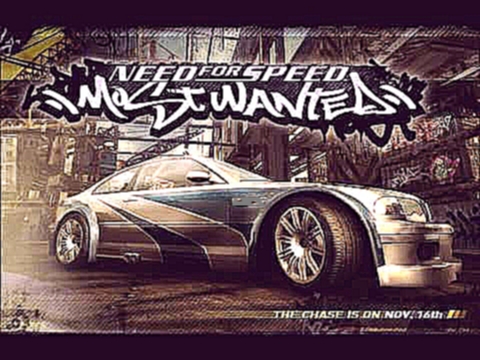
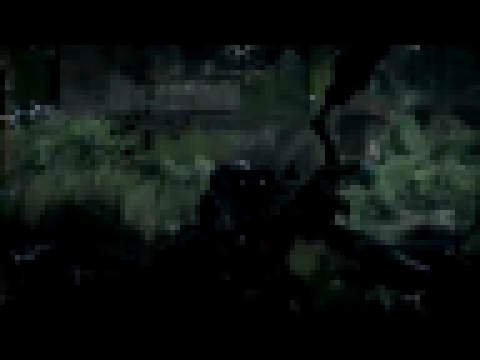
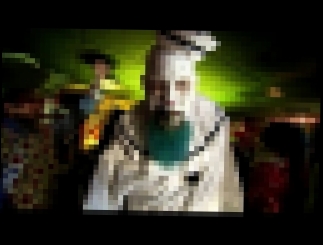
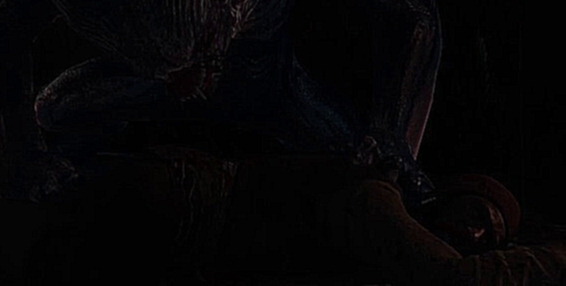
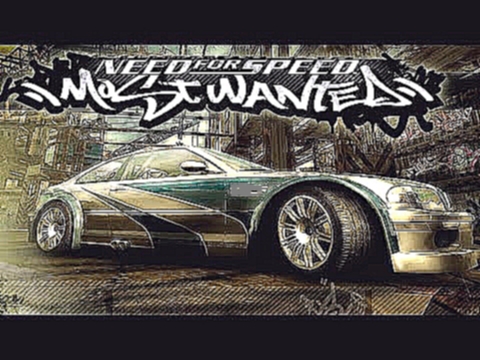

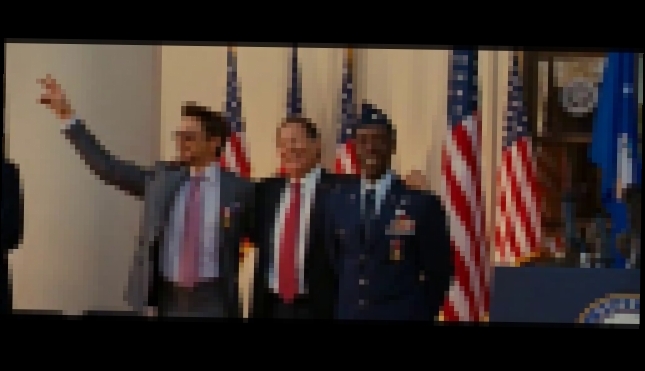
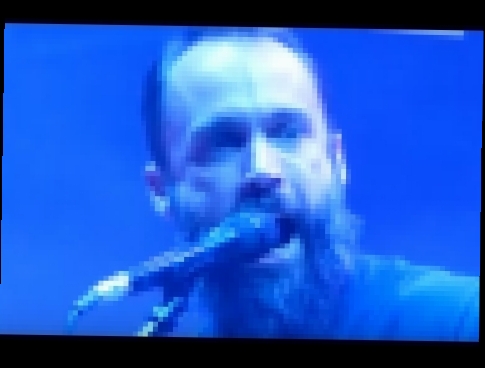


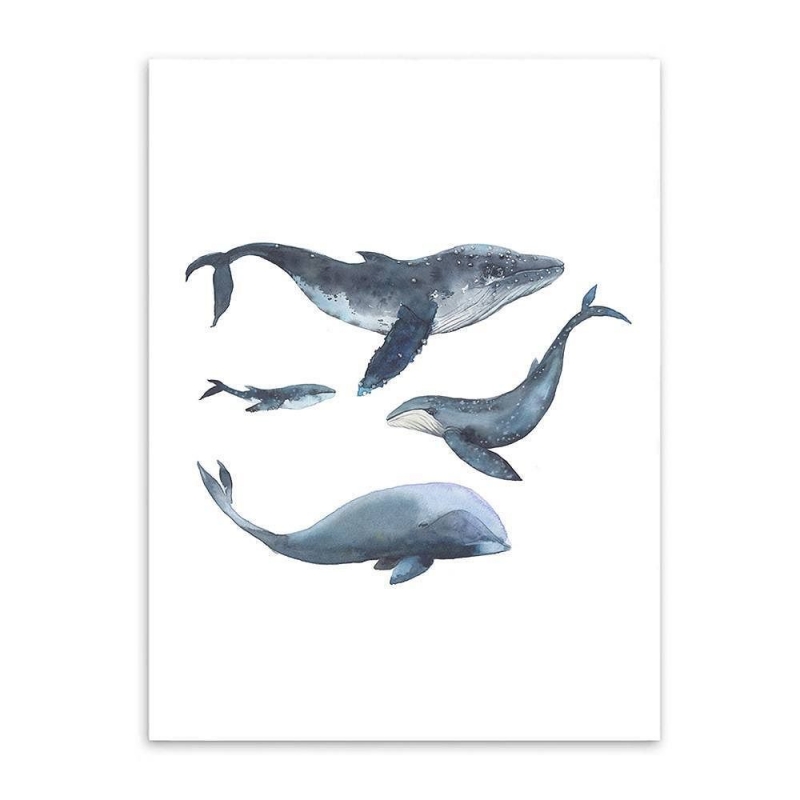
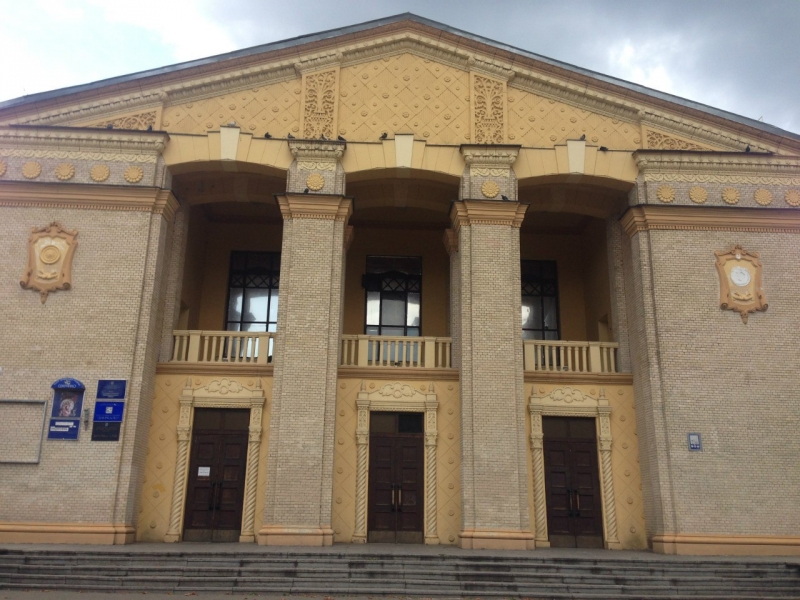

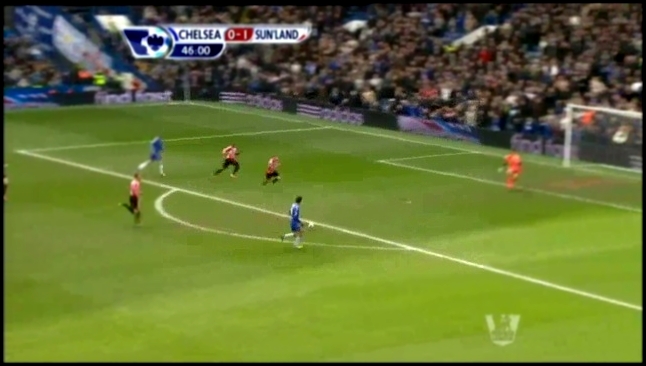
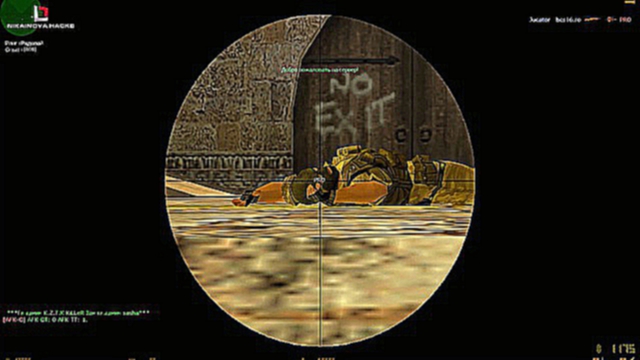

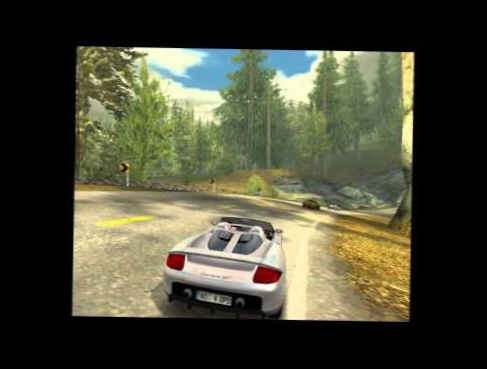
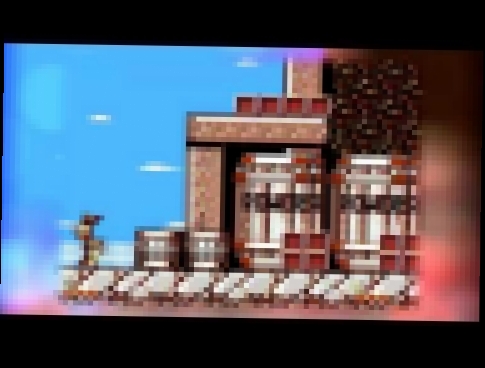
![Mania - Мой город [Женский Рэп Портал]](/uploads/images/1/_/m/1_mania_moj_gorod_zhenskij_rep_portal.jpg)
![Nephilim - Второй сын [C2 prod.]](/uploads/images/n/e/p/nephilim_vtoroj_sin_c2_prod.jpg)
